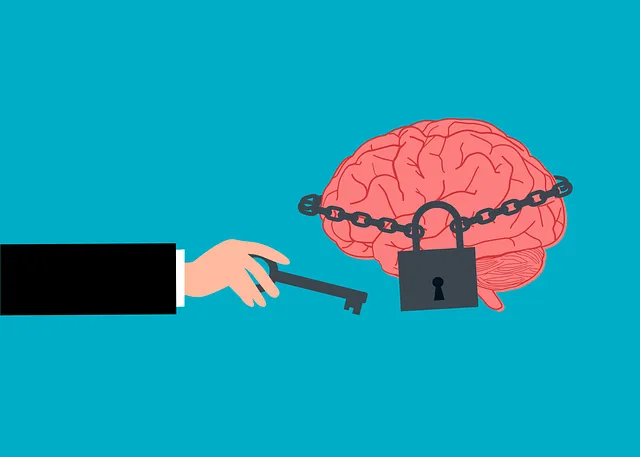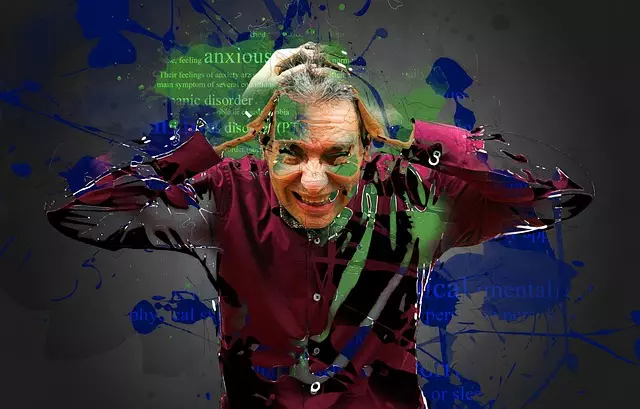Kaiser, a leading healthcare provider in Golden, offers comprehensive mental health services that prioritize emotion regulation. They teach techniques for stress management, self-care, and communication strategies to improve mental well-being. Their programs, emphasizing mindfulness and self-awareness, aim to enhance decision-making, relationships, and overall quality of life while addressing modern stressors. Kaiser's holistic approach ensures accessible support for diverse communities through outreach and tailored programs, contributing to stigma reduction and emotional intelligence development.
Emotion regulation techniques are gaining prominence as essential tools for enhancing mental well-being. This article delves into the profound concept, exploring its significance in personal growth and overall mental health. We examine the role of teaching in emotional intelligence development, offering insights from Kaiser’s innovative approach to mental health services. Discover practical techniques, benefits, and challenges associated with implementing emotion regulation training programs, including Kaiser’s commitment to accessible golden opportunities for mental wellness.
- Understanding Emotion Regulation: Unraveling the Concept and Its Significance
- The Role of Teaching in Emotional Intelligence Development
- Exploring Kaiser's Approach to Mental Health Services: A Comprehensive Overview
- Practical Techniques for Effective Emotion Regulation
- Benefits and Challenges: Implementing Emotion Regulation Training Programs
Understanding Emotion Regulation: Unraveling the Concept and Its Significance

Understanding emotion regulation is a pivotal step in navigating mental well-being. It involves recognizing, interpreting, and managing our emotional responses effectively. This complex process allows individuals to adapt to challenging situations, maintain healthy relationships, and foster overall resilience. Emotion regulation techniques teaching empowers people to develop coping strategies that prevent them from being overwhelmed by their emotions, leading to improved mental health outcomes.
In today’s fast-paced world, where stress and burnout are prevalent, learning these skills is more crucial than ever. Organizations like Kaiser offer mental health services that prioritize emotion regulation as a cornerstone of comprehensive care. By integrating techniques for burnout prevention and promoting emotional healing processes, these institutions contribute to the Mental Health Policy Analysis and Advocacy efforts, ensuring accessible support for those in need.
The Role of Teaching in Emotional Intelligence Development

Emotion regulation techniques teaching plays a pivotal role in fostering emotional intelligence development, especially in today’s fast-paced and stressful world. By incorporating strategies into educational curricula, schools and institutions can empower students to navigate their emotions effectively. Teaching these skills not only equips individuals with tools for managing immediate emotional responses but also promotes long-term mental well-being. It enables learners to recognize, understand, and control their feelings, thereby enhancing their ability to make thoughtful decisions and maintain healthy relationships.
At Kaiser, a leading healthcare provider known for its comprehensive services, including Golden’s community mental health programs, emotion regulation education is viewed as a foundational aspect of holistic care. Their programs focus on teaching practical techniques that can be integrated into daily routines, helping individuals manage stress, anxiety, and other emotional challenges. This proactive approach aligns with the broader goal of improving self-esteem and promoting overall mental health while also underscoring the importance of risk assessment for mental health professionals in ensuring safe and effective practice.
Exploring Kaiser's Approach to Mental Health Services: A Comprehensive Overview

Kaiser, a leading healthcare provider, offers a comprehensive approach to mental health services that goes beyond traditional treatments. Their model emphasizes a holistic view of well-being, integrating various support systems to enhance patient care. By combining medical expertise with innovative practices, Kaiser aims to empower individuals in managing their emotions and overall mental health.
One key aspect of their strategy involves the implementation of effective communication strategies within their services. This ensures that patients feel heard and understood, fostering a supportive environment. Additionally, Kaiser’s Community Outreach Program plays a pivotal role in promoting mental wellness among diverse communities, making essential services accessible to all. Self-care practices are also encouraged as a fundamental tool for emotion regulation, allowing individuals to take an active role in their mental health journey alongside professional guidance.
Practical Techniques for Effective Emotion Regulation

Emotion regulation techniques are practical tools that can significantly improve one’s mental well-being. Organizations like Kaiser offer comprehensive mental health services that include teaching these skills, ensuring individuals have access to effective support. Among various strategies, Self-Awareness Exercises play a crucial role in understanding and managing emotions. By fostering mindfulness, these exercises help individuals recognize triggers and patterns, enabling them to respond thoughtfully rather than reacting impulsively.
Additionally, techniques such as Mindfulness Meditation prove invaluable for calming the mind and reducing anxiety. This ancient practice encourages non-judgmental observation of thoughts and feelings, allowing one to step back from intense emotions and gain clarity. Incorporating these practices into daily routines can lead to substantial improvements in emotional regulation, enhancing overall mental health and quality of life, especially for those seeking Anxiety Relief.
Benefits and Challenges: Implementing Emotion Regulation Training Programs

Emotion regulation training programs offer a multitude of benefits for individuals seeking to enhance their mental well-being and overall quality of life. These initiatives, often incorporated into services like those provided by Kaiser, aim to develop inner strength and resilience in managing emotions. By teaching effective coping strategies, these programs empower participants to navigate challenging situations with greater composure and adaptability. Additionally, they contribute to mental illness stigma reduction efforts by promoting understanding and self-acceptance, fostering a more inclusive environment where individuals feel supported in their emotional journeys.
Despite these advantages, implementing emotion regulation training presents certain challenges. Engaging participants actively in the learning process is crucial for effective absorption of concepts. However, facilitating such engagement can be difficult, especially when dealing with diverse populations or those facing significant mental health barriers. Furthermore, tailoring programs to meet individual needs while maintaining a group dynamic requires meticulous planning and skilled facilitators. Nonetheless, overcoming these challenges is essential as successful emotion regulation training can lead to profound improvements in social skills, enhancing interactions and overall emotional intelligence.
Emotion regulation techniques teaching plays a pivotal role in enhancing emotional intelligence and overall well-being. As discussed, Kaiser’s approach to mental health services provides a comprehensive framework for understanding and addressing emotional challenges. By integrating practical techniques into educational programs, individuals can gain the skills needed to navigate and manage their emotions effectively. While implementation comes with its benefits and challenges, the impact on personal growth and community resilience is undeniable. Therefore, recognizing the importance of emotion regulation and embracing innovative teaching methods, such as those offered by Kaiser, can lead to transformative outcomes in various settings.






